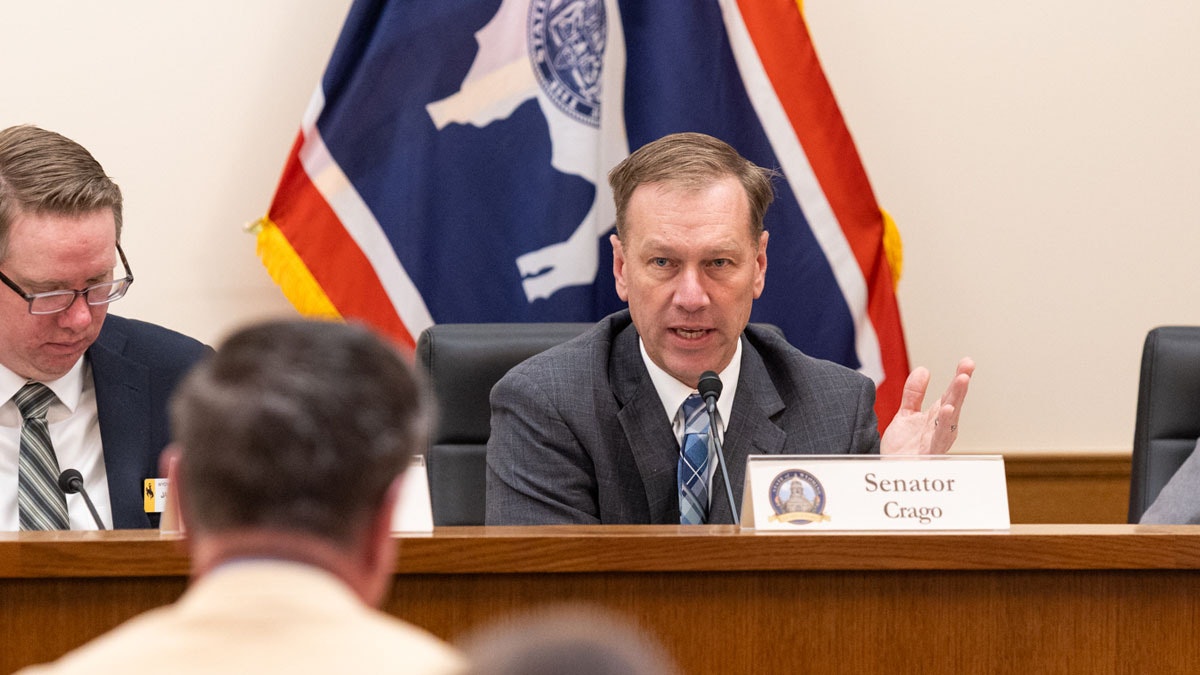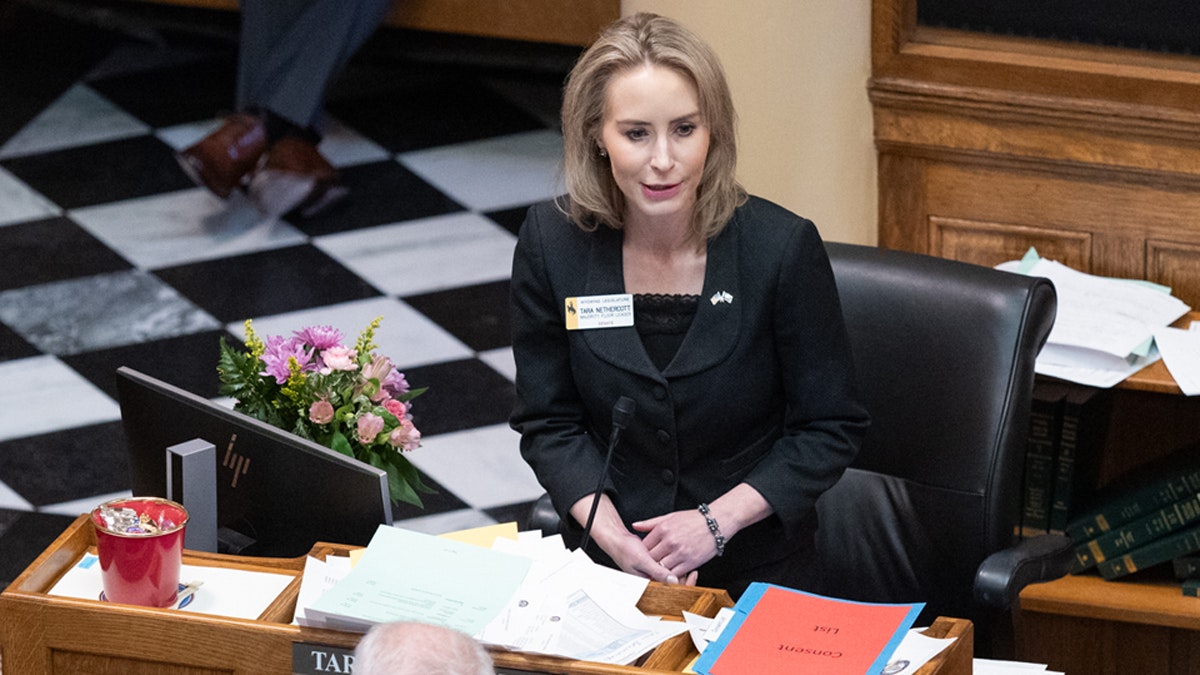Rural mail under the Delivering for America Plan will be significantly slower, according to an analysis by the Postal Regulatory Commission, which finds that the plan glosses over the difficulties for rural mail, and is overall unlikely to “lay a foundation for success” for the troubled agency.
Rural populations, in particular, won’t be receiving first-class mail for six or more days under the plan, the PRC said, and at least half of all ZIP Codes in America will see at least some down-graded service for first-class mail.
The analysis, released Jan. 31, was part of a non-binding review of Postmaster General Louis DeJoy’s Delivering for America Plan, which has attracted criticism from both Democrat and Republican lawmakers.
DeJoy, who gave himself an “A” for the plan during Congressional hearings late last year, requested the advisory opinion in October, amid widespread criticism of his plan. The PRC had also been urging DeJoy to request the opinion, which is mandated by law whenever a proposed change would affect service on a nationwide, or substantially nationwide, basis.
While agreeing with DeJoy that the Postal Service faces extreme challenges and that change is necessary, the PRC said that Delivering for America relies on defective modeling, overly optimistic cost-savings, and fails to fully consider the negative impact to rural communities.
“The Commission finds the Postal Service is irreversibly changing its network without laying a foundation for success,” the PRC said.
Significantly Negative Impact For Rural Areas
A key finding from the PRC’s analysis for Wyoming are the significantly negative effects that Delivering for America will have for rural communities.
An analysis of ZIP Code pairs (mail sent from one ZIP Code to another) shows a disproportionate downgrading of service standards for rural areas, the PRC said, something that Delivering for America “glosses over.”
“In considering the Postal Service’s claims that service performance and reliability will improve as a result of its proposed changes, the Commission is concerned that the opposite may occur, as demonstrated by the considerable decline in service performance in areas such as Richmond, Virginia, and Atlanta, Georgia, where the proposed network changes have already been implemented,” the PRC said.
“The Commission is also greatly concerned that these disproportionate impacts will most greatly affect rural citizens and businesses who rely heavily on the Postal Service, delaying both their outgoing mail and their receipt of key documents and other essential items sent from areas also experiencing downgraded service," it said.
For letters and postcards, the type of mail most likely in most American households, 49.5% of ZIP Code pairs will experience downgrades to service, the PRC said, as will many periodicals and package services.
Downgrades in service are not likely to be fully captured, the PRC added, because the Postal Service currently lacks a system that could accurately and reliably measure service performance at the 5-digit level.
Dejoy: “We Will Soon Be Great”
DeJoy has defended his work vehemently and said that anyone standing in the way of Delivering for America would bring about the end of the U.S. Postal Service.
At the most recent meeting of the Postal Service Board of Governors, DeJoy did report a net income of $144 million for the first quarter of fiscal 2025, as compared to a $2.1 billion loss for the same quarter last year.
The Postal Service is still, however, projecting a $6.9 billion loss for year-end 2025.
“We did more with less this quarter,” DeJoy said. “We hired fewer seasonal employees, relied on fewer annexes, flew fewer planes, ran fewer trucks to fewer places, and processed more mail and packages.”
DeJoy said total revenue in December was $8 billion, the highest revenue month ever, and that expanded processing capabilities allowed the Postal Service to handle the surge in holiday mail and packages.
“We have gotten better while pursuing our goals specified in the DFA plan,” DeJoy told the Postal Service Board of Governors. “We need to get even better — in fact much better. But we will soon be great. It is required of us.”
DeJoy said his plan and strategies are “simple and proven.”
“If not yet at the Postal Service, certainly found across the array of private enterprises circling around us,” he said. “Complicating our journey is our failure to do the simple things, such as showing up to work, managing our people, executing our operational adjustments, mindfully maintaining our schedules, and reacting quickly and logically to change the behavior of our bureaucracy and have it work towards new ambitions — especially one as enormous and as weakened as the Postal Service.”
Dejoy also listed as obstructions the “archaic, artificial, unreasonable, unachievable, unnecessary service requirements, standards and business rules.”
“These have been considered with a bureaucratic mindset that completely ignores the need to balance service expectations against the legal requirement for us to be financially self-sufficient,” he said. “These ludicrous and detailed rules have brought this organization to our knees, by restricting our ability to evolve our operating practices to serve modern-day customers and to fully coverour costs as required by law.”
The best example of that, DeJoy said, is the PRC’s recent advisory opinion expressing doubt about his plans.
“By thoughtlessly adhering to standards that no longer reflect operational, financial, or business realities, or the reasonable expectations of most of our customers, they stand in the way of meaningful change and threaten the continued existence of the Postal Service as a viable public service,” DeJoy said. “Nothing symbolizes this more than the recent advisory opinion by the Postal Regulatory Commission, which fundamentally mischaracterizes and trivializes our proposal.
“In sum, the Commissioners essentially suggest that they are smart, and we are dumb,” DeJoy continued. “Furthermore, they state our $3.6 to $3.7 billion in annual cost savings is meager since it only represents 4.4% of our total costs. What business in the private sector or government entity in the public sector would trivialize nearly $4 billion in annual savings?”
Wyoming Not Sold On Plan
The fact that many of the gains in Dejoy’s Delivering for America come at the expense of rural deliveries has sparked significant outcry in Wyoming, however, where the proposal would mean moving all of the Cowboy State’s major mail processing capabilities out of the state.
Under the plan, Cheyenne’s large mail processing capabilities move to Denver and Casper’s move to Billings, putting a lot more mail on the road in winter. Wyoming would not get even one of Delivering for America’s 60 Regional Processing Distribution Centers.
“Postmaster General DeJoy’s Delivering for American plan has caused needless disruptions, particularly for rural communities that depend on the USPS for essential services,” Rep. Harriet Hagemen, R-Wyoming, told Cowboy State Daily. “The Postal Regulatory Commission is right — the plan will undermine USPS’s ability to serve those who need it most. In just one glaring example from the Advisory Opinion, mail sent from central Wyoming to western Wyoming would be needlessly routed through four processing facilities across three different states, creating significant delays.”
That kind of inefficiency is unacceptable and unnecessary, Hageman added.
“DeJoy has failed in his responsibility to ensure reliable service for all Americans, and my colleagues and I are committed to holding USPS accountable,” she said. “It’s time to end postal policies that neglect Wyoming and other rural states.”
Wyoming’s Congressional Delegation came together last year to sponsor a bill that would prohibit taking away all of a state’s major mail processing capabilities. The bill didn’t make it through the legislature, but Hageman has since written to President Donald Trump, asking him to put a stop to the Delivering for America Plan.
In the letter, Hageman highlighted significant problems Delivering for America has experienced at pilot locations.
“Consolidation of smaller facilities into centralized hubs has resulted in mail traveling longer distances for processing, delaying delivery timelines,” she wrote in the letter. “Should these consolidations continue, rural areas, already facing longer delivery routes compared to their urban counterparts, are certain to see even more delays as mail is sent to distant facilities, sometimes across state lines, before returning for local delivery.”
No More Evening Mail Collection
Delivering For America will eliminate evening mail collection at post offices more than 50 miles from a Regional Processing Distribution Center — which, in Wyoming’s case, is the entire state. Known as Regional Transportation Optimization, that portion of the plan will, by itself, add an extra day of delivery for mail that originates from rural areas, Hageman said.
Meanwhile, the experience of communities like Atlanta and Virginia suggest that the plan isn’t really all it’s cracked up to be, Hageman added.
“Analyzing the impacts of the Regional Transportation Optimization initiative in six pilot regions from October 2022 to July 2024, the USPS Office of inspector general found that the initiative resulted in worse delivery outcomes and higher costs,” Hageman said in her letter to Trump. “In these pilot regions, service performance scores for single-piece First-Class Mail dropped below 65% in rural areas, and despite the initiative’s cost-saving goals, transportation expenses increased by over $7.1 million.”
Hageman also highlighted concerns about delayed delivery for absentee ballots in her letter — something Secretary of State Chuck Gray has also been critical of.
“This latest development further shows that these repeated and disturbing efforts to move mail processing outside the State of Wyoming are detrimental to Wyoming elections and the people of Wyoming,” Gray told Cowboy State Daily. “The Postal Service should withdraw these efforts entirely. As Wyoming Secretary of State, I strongly oppose what the post office is doing in moving mail processing out of state.





